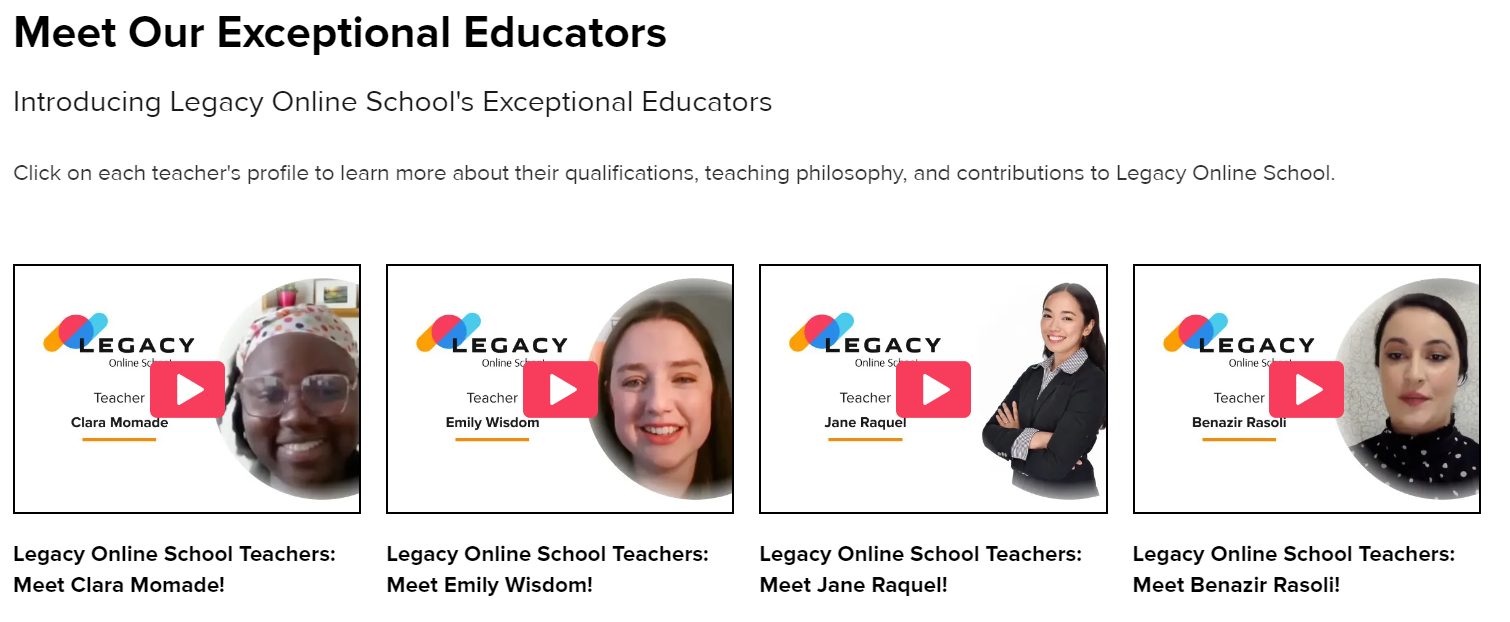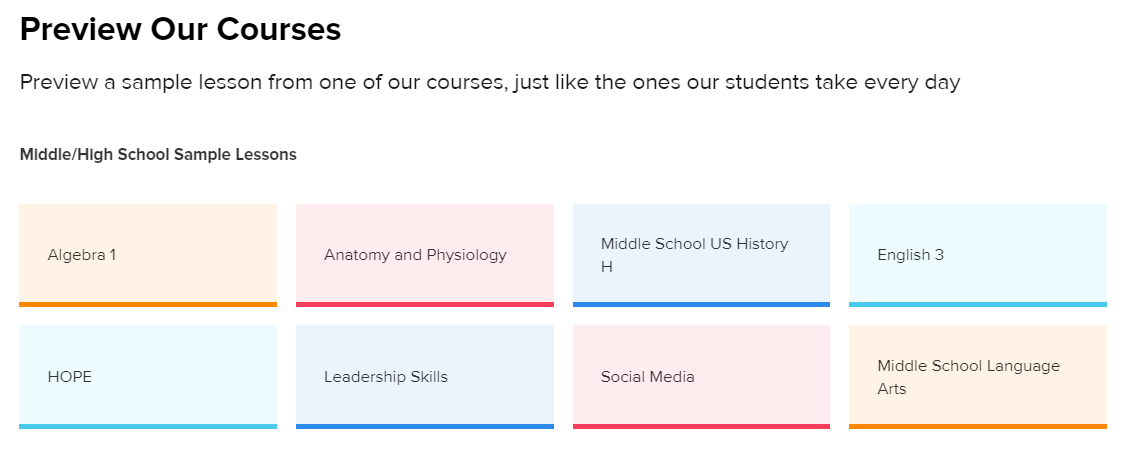Contents
- 1 Special Education Teachers
- 2 Benefits of Virtual Instruction for Inclusive Learning
- 3 Preparing for Role and Pedagogy
- 4 Maximizing Technology and Resources
- 5 Resourceful Use of Multimedia
- 6 Curriculum, Engagement and Communication
- 7 Progress Monitoring and Assessments
- 8 Individualized Assessment Protocols
Who are special education teachers? Special education teachers are educators who support students with disabilities in accessing the general education curriculum. They work with a team to design individual education plans to personalize each student’s educational experience.
Virtual education teachers are revolutionizing the way students need to learn in the digital space.
Virtual educators work with a wide range of abilities by personalizing lesson plans. Verbal teaching increases inclusivity and uses subtle methods, inclusive techniques, and resources. Verbal lessons like that help to remove barriers to learning pupils may encounter. Teachers wear many hats. They go from identifying learning gaps to record keeping and helping other educators.
Special Education Teachers
Meet our teachers at Legacy Online School by clicking here and meeting them face to face. See for yourself who will teach your kid and rest assured that your child is in good hands.
A virtual special education teacher plays a crucial role in providing inclusive online learning for students with diverse needs.
Responsibilities of virtual educators include a variety of different tasks listed below.
- Instructing assigned classes
- Creating a conducive learning environment
- Planning individualized study programs
- Assessing student accomplishments
- Diagnosing learning disabilities
- Collaborating with department heads to ensure effective education delivery.
Benefits of Virtual Instruction for Inclusive Learning
Virtual teaching has many unique advantages for including learning. Susan G. Porter, Kai Greene, and M. C. Kate Esposito studied the inclusion of special needs children in the learning environments post-COVID, stating the future opportunities and larger benefits.
“Educators see opportunities in the application of technology in virtual environments, which have the potential for leveling the instructional playing field for many students who have been underserved and poorly taught in face-to-face classrooms and more traditional virtual environments.”
– Susan G. Porter, Kai Greene, and M. C. Kate Esposito on “Access and Inclusion of Students with Disabilities in Virtual Learning Environments: Implications for Post-Pandemic Teaching”
Several of the current virtual learning advantages are covered below.
Legacy Online School offers Inclusive Learning Programs, so check them out right here to see for yourself.
Flexibility
Virtual instruction has a big advantage in flexibility. Flexibility assists with planning and delivery of education. Teachers can easily adapt their instructional strategies to cater to the diverse learning styles and specific needs of each student to ensure their progress.
Virtual platforms allow educators to add different types of media and tools like ReadingRockets, Starfall, Storyline Online, and more. Teachers use them to fit students’ preferences for personalized learning as they make learning fun and easy.
Access to Specialized Expertise
Traditional schools have geographical limitations and virtual education does not. Geographical limitation blocks students’ access to specialized expertise and resources for their unique needs like dyslexia or dyscalculia.
However, online instruction goes beyond these physical limits. Online studying gives students access to specialized teaching when it’s not available nearby. Virtual learning opens a world of possibilities for personalized learning experiences tailored to each student’s requirements.
Personalized Learning
Personalized learning is the key hallmark of virtual learning. It assists students at their own pace by giving tailored support and interventions as needed. Teachers use digital tools and resources to increase personalization of their teachings. Customization of teaching programs helps match a student’s strengths and areas for growth to create a balanced educational experience.
Inclusivity
The biggest benefit of virtual instruction is its capacity to foster inclusive learning. Digital platforms give all students opportunities to pursue education regardless of their abilities or disabilities. Every student can participate in learning. Virtual instruction promotes inclusion with adaptive technologies, interactive content, and collaboration. These virtual features create an ethos where every student feels valued and empowered.
Consider a scenario where a student with auditory processing difficulties finds it challenging to engage in traditional classroom discussions. In a virtual environment, a student like that can use closed captioning or visuals to assist with their auditory processing. Closed captions and visuals help them understand and join class discussions with their peers.
Embracing virtual instruction’s potential helps educators create an inclusive landscape. Every learner gets the tools and support needed to thrive in an inclusive environment. Virtual special education teachers can use digital platforms’ capabilities to include more students. Virtual educators can go beyond conventional barriers and create fair and meaningful educational experiences.
Special education teaching has a big impact on inclusive online learning as it sets the stage for understanding the needed skills and teaching methods.

Preparing for Role and Pedagogy
A virtual special education teacher is a challenging yet rewarding role. This role requires a deep understanding of special education methodologies, assistive technologies, and inclusive instruction. Teaching is not the whole story of educators. Teachers’ work includes creating a virtual environment for learning where every student feels supported, included, and able to do their best through the educator’s teachings.
Teachers need specialized training that covers special education methods. This training involves learning and using various teaching techniques. Educators tailor the techniques to meet the diverse needs of students with disabilities. The training covers modifying lessons for different learning styles. It also covers using individualized education programs (IEPs). Individualized education programs are special plans created by the educators for their students to assess their strengths and weaknesses for better educational experience. IEPs equip educators with the knowledge and skills needed to create a good virtual learning environment for their students.

Technology
Assistive technology is key for special needs educators. Technology helps students with disabilities in online settings. Virtual special education teachers know how to use assistive technology tools to support their students. These assistive tools include screen readers, speech recognition software, and alternative input devices. Technological tools help address accessibility barriers and promote independent learning among students with diverse needs.
Knowing how to provide engaging and accessible virtual instruction is essential for special needs educators. This is where familiarity with online teaching platforms comes into play. Teachers need to navigate these virtual platforms and guide their students well through them. Students with disabilities need extra support to use these online platforms. It’s the teacher’s job to ensure that each student can fully join the online learning.
Consider a scenario where a student with poor vision needs special software. The software enlarges text or turns it to speech. Knowing these assistive technologies empowers the teacher. Educators can use them to make accessible materials and activities. This ensures that all students can engage with the curriculum.
Online teaching platforms offer features including interactive whiteboards, breakout rooms, and multimedia integration. Understanding how to use these features boosts engagement and allows for tailored, varied teaching to individual needs.
Conclusion On Training
Virtual special education teachers need thorough training in special education. Their training must include assistive technologies and inclusive coaching. Teachers know many online learning platforms to give fun and accessible online lessons to students with special needs. Knowledge in assistive technologies helps teachers create an environment that offers inclusive online learning for all.
Harnessing technology and resources becomes paramount in maximizing the potential for inclusive online learning experiences.

Maximizing Technology and Resources
Assistive technologies are vital when teaching students with special needs online. Technology ensures accessibility and engagement. These assistive tools include screen readers, speech-to-text software, alternative input devices, and more. Teachers can give students the support they need by adding these tools to the virtual learning environment. It will help students with special needs fully take part in educational activities.
Screen readers are helpful for students with vision problems as they convert text into speech or Braille. This tool helps access and understand digital content. Speech-to-text software has a big advantage for special needs students. It helps children with mobility challenges or specific learning disabilities express their thoughts efficiently. Speech-to-text software does this by turning spoken language into written text. This software has other input devices like joysticks or touchpads. Speech-to-text helps students who struggle with normal input methods and ensures every learner can interact with online educational materials.
Teachers can create an inclusive virtual classroom by using these assistive technologies. All students can join in and benefit from the learning.
Resourceful Use of Multimedia
Multimedia resources include educational videos, interactive simulations, and digital learning materials. These resources offer many chances for engaging, multi-sensory learning. The resources become even more impactful when working with students with special needs. Multimedia tools cater to various learning styles and abilities.
Imagine a student with autism who responds well to visual and auditory stimuli. Adding videos to the lesson plan can grab their attention and help them learn meaningfully. Interactive simulations are similar since they provide hands-on opportunities for students with impairments. Impairments can include cognitive or motor skill challenges. Students with special needs use the simulations to explore complex concepts in a dynamic and accessible way.
Digital learning materials can be changed to fit different levels of complexity. Adjustments ensure each student can engage at their own pace and according to their needs. Interactive quizzes have varied difficulty levels to allow educators to tailor assessments to each student’s capabilities.
Key parts of curriculum design help foster student engagement and clear communication in the context of special education online.
Curriculum, Engagement and Communication
Tailored curriculum development becomes an essential topic as one-size-fits-all approach doesn’t work for students with special needs. Each student has their own unique learning style and ability, which is supported in virtual special education. This means that a teacher must adapt the curriculum for students with special needs. Educators must do this to ensure that every student can access and understand the content.
Want to see how a curriculum can look like? Check out our curriculum at Legacy Online School.
Providing new takes on materials provided includes audio files or videos. These new audio and visual formats help students with different abilities engage with the materials. It’s also important to include a variety of activities and assessments to cater to diverse learning styles.
A student struggling with traditional reading will benefit from audio recordings of texts.
Another student has difficulty with fine motor skills and they will thrive using interactive touch-screen activities.
Engagement strategies are vital in any classroom setting. It becomes even more important in a virtual environment. Teachers need to use interactive activities that excite students and prompt them to engage in them. Activities involve group discussions, collaborative projects, and interactive educational tools.
Tailoring these activities to meet individual learning needs becomes essential for educators. For example, giving students choices in how they complete an assignment helps them find their niche. Allowing hands-on learning through virtual labs also helps students with special needs. These changes can better serve students with diverse learning requirements.
Special Attention of Educators
Special attention goes to students who need extra support or modified assignments including giving clearer instructions, check-in points in assignments or visual aids for better understanding. Some students respond well to role-playing activities that simulate real-world scenarios, while others thrive in collaborative tasks where they can work together with their peers.
Virtual special needs educators must consider effective communication. Establishing clear communication channels is essential for virtual education teachers. Clear communication includes students, parents, and other support staff.
Regular updates on student progress become crucial in virtual education. Updates help parents and support staff see how to best help the student outside of the classroom. Teachers should also provide regular feedback on educational plans and academic goals.
Updates involve sending weekly progress reports to parents or scheduling calls with support staff to discuss student performance. Setting up virtual parent-teacher conferences can also be included. These are to discuss academic progress and areas needing support.
Teachers who recognize the need for custom curriculum, interactive teaching, and clear communication are best equipped to help special needs students. Prepared educators create an inclusive and supportive online learning experience for all students.
Progress Monitoring and Assessments
Ongoing progress tracking is crucial in a virtual special education setting. Teachers need to consistently monitor students’ progress through formative assessments and continuous feedback. Assessments and feedback lets educators adapt instruction to meet students’ evolving needs. It ensures they are progressing academically and developmentally despite the unique challenges of online learning.
Formative assessments are checkpoints along the learning journey as they provide valuable insights. Assessments show how well students understand the taught material. Teachers can find areas where students struggle by using these assessments. Educators can then adjust their teaching methods. One example of a formative assessment can be a short quiz at the end of a lesson to gauge comprehension. These checkpoints help in adapting instruction and addressing any gaps in learning in a timely manner.
Some students struggle with traditional testing methods. For example, students with speech or language disabilities might find it hard to express their knowledge. Children will find it hard to show their knowledge through written tests. Other assessment methods could better gauge their understanding when a child struggles with traditional methods. Methods like oral presentations, visual projects, or interactive quizzes become the best checkpoints. It’s crucial to tailor assessments to each student’s individual needs to get an accurate representation of their progress.
Individualized Assessment Protocols
Students have varying special needs in online learning where one-size-fits-all tests won’t work for them. Individualized assessment protocols come into play when traditional assessments don’t work. Educators designed these protocols to measure well and use them to track each student’s progress. Kenneth Denton and Michelle Simmons agree on the fact that authentic and specialized assessments can help students reach higher points.
“Authentic assessments bridge student critical thinking capacity and are best used in conjunction with more “traditional” assessment approaches. As such, authentic assessment can be applied in many creative ways in a virtual setting.”
– Kenneth Denton and Michelle Simmons on “Virtual Learning Assessment: Practical Strategies for Instructors in Higher Education”
Each student’s abilities and requirements are unique. There’s no single assessment method that fits every single student. Teachers can better understand their progress by customizing assessment methods for each student. Educators can provide targeted support where needed. For example, a student with dyslexia needs more time or resources for reading tests. A student with ADHD needs short, frequent tests and not long ones.
Imagine a scenario with a girl named Sarah. She’s a 7-year-old student with autism and struggles to talk but is great at understanding visuals. An assessment protocol that uses visual aids and activities is far better than traditional one. Her teacher can get a truer picture of her progress by tailoring assessments to Sarah’s strengths in visuals. They can give help when needed by using this assessment protocol.
Embracing individualized assessment protocols ensures each student gets fair evaluations. Individualized evaluations help teachers better understand each student’s unique abilities and challenges. Virtual special education teachers can better help their students by using this approach.
Virtual special education teachers recognize and address the diverse needs of each student. Educators do this through personalized assessment strategies to increase proficiency of their help. They play a key role in nurturing inclusive online learning environments. Environments with inclusive learning societies paves the way for every learner’s success.
Check out Legacy Online School programs:
- Legacy Online School’s elementary school program sets the bar high. This is a quality education. We strive to ignite curiosity. We also strive to foster creativity. We offer a strong curriculum. We are assisted in this by qualified educators.
- Legacy Online Middle School provides digital education. It is designed for middle school students. The school prides itself on offering live online classes taught by certified teachers. The classes are online and interactive.
- Legacy Online High School is a unique method of online learning carefully designed for high school students. It combines synchronous learning, a wide range of pedagogical methods, and an emphasis on accessibility.
Legacy Online School offers the best curriculum for you and your child to get the best online educational experience.
Our rigorous curriculum ensures that graduates are well prepared for universities and workplaces around the world. In addition, our vibrant virtual clubs connect students all around the world.







